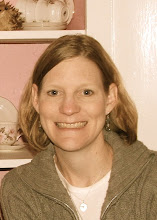On my next to last Sunday at Cashiers UMC, I was more than just relieved that it wasn't time yet for my final sermon. I was grateful to hear a sermon by someone else, Dr. Mickey Efird. I didn't have the opportunity to be in a class taught by Dr. Efird while I was a student at Duke Divinity School, so it was a joy to receive his morning message. He lifted up the story of the man at the pool in the Gospel of John, and it resonated very clearly with me.
Now in Jerusalem by the Sheep Gate there is a pool, called in Hebrew Bethzatha... One man was there who had been ill for thirty-eight years. When Jesus saw him lying there and knew that he had been there a long time, he said to him, "Do you want to be made well?" (John 5:2, 5-6 NRSV)
Dr. Efird offered a much more interesting translation of the phrase, "Do you want to be made well?" He suggested that a more faithful reading of the Greek would be, "Are you willing to receive healing?" The nuance of this alternate reading is both eye-opening and challenging.
The former phrase from the NRSV requires a simple "yes" or "no" or maybe even duh!...of course!...yes. The latter phrase to some extent requires more than a simple "yes" or "no." It encourages and maybe even demands introspection, honest self-reflection, and heartfelt desire for change, especially in light of the man's lengthy stay at the pool.
When asked about his willingness, a simple "yes" or "no" would not suffice for the man at the pool, considering he had positioned himself in the same place for THIRTY-EIGHT YEARS! There would definitely be more required in his response. Something had kept this man by the pool for all these years. After all, as Dr. Efird said, "For some reason this 'ole boy didn't even try to role himself into the water." In turn, Dr. Efird allowed for some speculation within this story, and so he offered four barriers that might have caused thirty-eight years worth of difficulty for this man.
First, he might find himself to be a barrier. Sometimes facing self and being honest is most difficult. Second, he might find the world to be a barrier. It may just be easier to hide and ignore rather than to confront the struggles, sadness, and overwhelming needs in the world. Third, he might find other people to be a barrier. Interacting with people requires vulnerability, and amidst conflict and pain it may not seem worth it. Fourth, he might find a fear of failure to be a barrier. There might just be too much cost in taking a risk.
And now, Jesus is standing before the well-positioned man at the pool and is looking him in the eyes. "Are you willing to be healed?" He must overcome the thirty-eight years. He must overcome the barriers. He must set aside the excuses. And he must trust (maybe for the first time in his life).
Then, the man hears the commanding words of Jesus: "Stand up, take your mat and walk." In an instant, the well-positioned man found himself on the other side of barriers and excuses. He allowed Jesus to transform, to open his life up, and to draw him away from the side of the pool. I can imagine that he not only became a man that could walk, but he became a man who would see the next thirty-eight years very differently.
Are you willing to receive healing? Are you willing to trust? Are you willing to be made new? Are you willing to receive grace? Jesus can liberate us from the barriers and excuses that keep us too well-positioned. Jesus can transform us into people who see the gift of a new journey.
I am willing.
I don't ever want to be so well-positioned that I am unwilling to move. I don't want to be the same person that I was yesterday. I don't ever want to be able to say that I waited thirty-eight years too long.
Wednesday, June 18, 2008
Subscribe to:
Post Comments (Atom)


0 comments:
Post a Comment